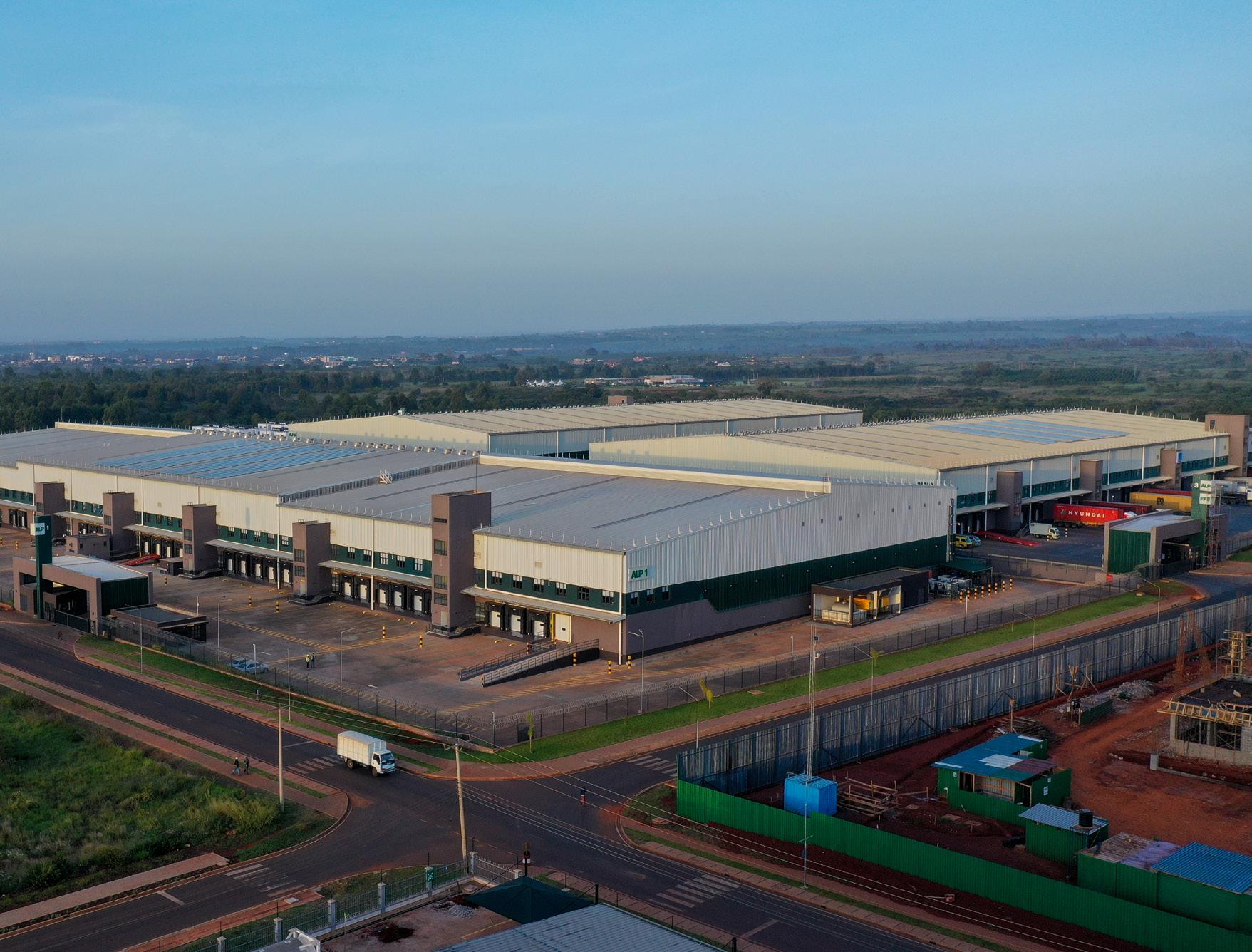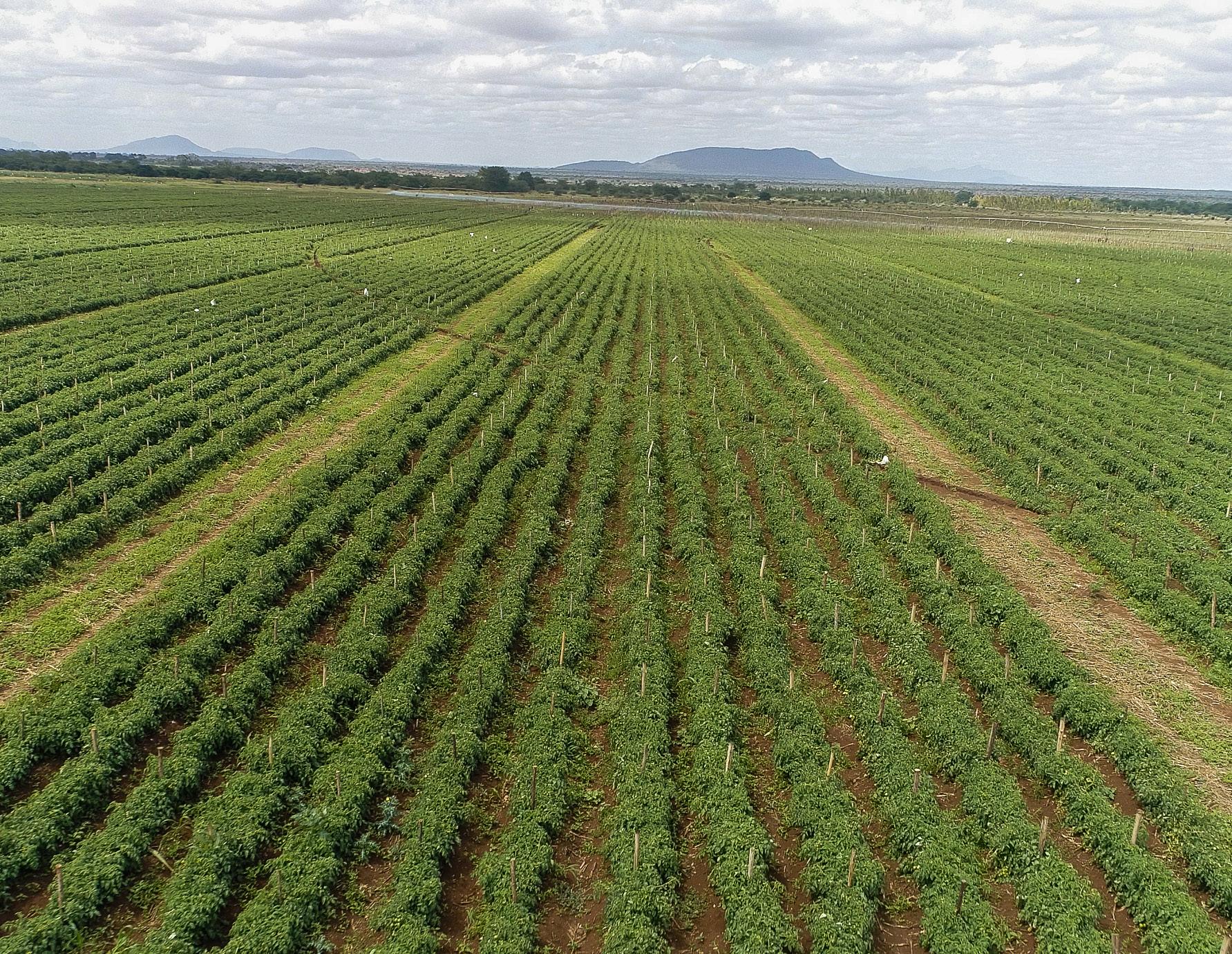BREATHING NEW LIFE INTO SEAMLESS PRODUCE DELIVERY





A tech-led enterprise with expansion on the menu, Twiga Foods is the distributor breathing new life into supply chains for fresh produce at scale. CEO and co-Founder, Peter Njonjo, discusses shaking up an inefficient segment of African industry
Writer: Phoebe Harper | Project Manager: Bex MiddletonInformal retail accounts for approximately 80 percent of the entire retail industry across Africa. Yet despite this overwhelming majority, it is an industry segment that is ripe for improvement and a heightened degree of efficiency, particularly in connecting the myriad small retailers that form a significant portion of that overall network.

With a specific emphasis on the food and drink retail space, this is exactly what technology-led enterprise, Twiga Foods (Twiga), aims to do, enhancing Africa’s food security by optimising supply chains and connecting consumers, vendors, and suppliers in the most efficient way possible.
As CEO and co-Founder of this
visionary enterprise, Peter Njonjo oversees a standout operation in pursuit of cross-continental industry change.
“We are the only player on the continent that’s delivering fresh produce at scale. Our trucks cover about 12,000 kilometres a day. For context, that’s like going around the world every three days,” he states.
Since its inception in 2014, Twiga has grown to encompass over 20 operations in both Kenya and Uganda, counting over 140,000 customers across both geographies and supplying over 12,000 of those customers on a daily basis. Supporting this gargantuan enterprise is a workforce of 3,000 people spread across those two
markets and delivering last-mile operations to Twiga’s ever-growing base of B2B customers.
“On a daily basis, we ship close to about one million kilos to our customers, and we also receive roughly the same, so we’re basically handling about two million kilos a day,” outlines Njonjo.
Combining this sheer scale with the implementation of sophisticated infrastructure and technological innovation, Twiga continues to build an entire ecosystem that transforms traditional African retail to the benefit of customers and vendors alike.
“This is an industry segment that’s extremely informal and inefficient, so
by bringing in technology and a blend of infrastructure, both mobilised and owned, we are building an ecosystem centred on efficiency,” he continues.
The ecosystem that Twiga envisions brings many advantages for suppliers and vendors, which ultimately translate to fairer prices for the consumer.
“Through Twiga’s model, we can start to lower the price of basic goods and services for consumers, which in turn reduces the amount of disposable income they’re spending on basic necessities,” Njonjo explains. This is where Twiga’s second greatest differentiator comes into
SOKO YETU – Twiga’s Super app brings a diverse assortment of products and services directly to vendors with 24-hour access via their smartphone or tablet.
SOKOLOAN – Twiga has partnered with financial institutions to provide much needed working capital for African retailers through a ‘Buy Now, Pay Later’ programme embedded in its app.
SOKO WALLET – An e-wallet solution that gives vendors a convenient and secure way to store funds through the app.
SOKO CALL – A toll-free call centre solution, providing all the capabilities of the Soko Yetu mobile app for vendors who prefer to place orders over the phone.
TWIGGY - With many vendors using WhatsApp, Twiga created SokoBot, affectionately known as Twiggy, to provide 24/7 customer support.
TWIGA FRESH – Twiga’s commercial farming ensures consistent, high-quality produce is delivered directly to retail vendors.
TWIGA PRIVATE LABEL - Private label products increase availability and deliver the best prices to Twiga’s vendors on important staples.
LOGISTICS MARKET PLACE - The Logistics Market Place seeks to optimise logistics operations and develop a competitive edge in last-mile distribution.
TWIGA AGENT – An innovative open bidding system gives fresh produce suppliers in Africa direct access to a market of interested vendors.
SOKO YETU AGENT - An Independent Agent model that allows anyone to register and start recruiting duka and kiosk owners in their neighbourhoods to join the Twiga supply chain.
SOKOLYTICS - Real-time product performance metrics from Twiga’s analytics platform help suppliers make timely, data-driven decisions to grow their business.
Grain Industries Limited: Makers of the popular and loved household name “Ajab” is located in the Shimanzi Area of Mombasa.
It is one of the leading millers in Kenya today, specialising in production of a diverse product range consisting of both wheat and corn-based products anchored primarily on quality and food safety.
Five years later, while the brand portfolio grows, GIL continues to deliver on its promise of exceptional premium quality and safeness (toxin safe).
AJAB... THE FLOUR THAT DOES MORE!
www.grainindustries.com
play in keeping prices low, as a company that works with specific manufacturers to create its own branded goods. Through its private label strategy, specialising in staple products from baby diapers to cooking oil, Twiga guarantees availability and ensures that vendors are getting the best price.
“Within both our private label strategy and our fresh produce line, we have done a lot of work in engineering the value chains to make them more efficient,” he continues. “We have figured out ways to backwards integrate that help us deliver high-quality produce at a lower price through brand ownership.”
In addition to fair prices for the consumer, Twiga’s various offerings also enable financial convenience for the vendor and supplier. When purchasing through the Twiga app – Soko Yetu – buyers that may not have sufficient working capital at






PETER NJONJO, CEO AND CO-FOUNDER: “One of the challenges that we faced previously was around the consistent access to high-quality produce. Twiga Fresh has allowed us to solve this challenge, and we have seen our fresh business grow leaps and bounds over the last four months since its launch. “It was a timely investment and has allowed us to get better control of some of the products that we’re not able to source consistently from smaller farms. Smallholder farmers continue to be an integral part of Twiga’s supply chain, but the key thing is that where we find gaps - which is not every day for all products - we then look at ways to close them by making our own investment.”

the time can order products at the touch of their fingertips with access to ‘Buy Now Pay Later’ options under ‘Sokoloan’ for either three or nine days, with a three day interest free period.
At Twiga, the incorporation of key technologies such as the app are instrumental in optimising supply chain management, where data drives the company forwards in harmony with the physical fleet of transport delivering the products themselves.

“When you look at how the industry operates today, there’s an asymmetry of information across different pockets,” observes Njonjo. “That impairs the quality of decisions that are made from a supply chain standpoint, resulting in the wrong products in the right areas or the right products in the wrong areas.”
Consequently, Twiga uses
 Peter Njonjo, CEO and co-Founder
Peter Njonjo, CEO and co-Founder




technology to reduce information asymmetry across the market, paving the way for better planning and decision-making.
“When we talk about planning, for example, we are thinking about a retailer who might be sitting in a remote village. They are now able to pick up their phone, place an order through our app, and have it delivered within 24 hours,” he elaborates.
“This never would have happened before – instead they would have had to stock up on a lot of products that might not even have sold.”
In terms of Twiga’s own internal planning, the company may not know which exact customers might need an order delivered for the following day, but it does know that trucks will have to be dispatched and routed.
“When you think about it from that perspective, that starts building a case for how we’re leveraging

optimising routes and the complexity of logistics.”
In this regard, Twiga benefits from vast backlogs of data that it can leverage to build further efficiency. As Njonjo affirms, “technologies are the heart of what we do because we generate so much data on a monthly basis.”
With the potential for Twiga’s business model to make waves across the entire continent, expansion is firmly on the agenda for the years ahead. Indeed, our conversation with Njonjo takes place from Twiga’s latest
instalment – a new distribution centre in Kiambu County by Tatu City bordering the capital city Nairobi, which consolidates the company’s warehousing needs.
In terms of entering new territories, Twiga will be following a strategic hub approach to expansion, with a further 10 countries across three regions on the horizon for the near future.
“We will continue to establish our East Africa cluster with Kenya, Uganda and Tanzania as the leads. Then, we will work on the Central Africa cluster with the Democratic Republic of the Congo (DRC) and
“ WE ARE THE ONLY PLAYER ON THE CONTINENT THAT’S DELIVERING FRESH PRODUCE AT SCALE”
– PETER NJONJO, CEO AND CO-FOUNDER, TWIGA FOODS
the Republic of the Congo, and our West Africa cluster which will include countries such as Ghana, Mali and Burkina Faso,” elaborates Njonjo.
Simultaneous to developing its physical footprint, Twiga will continue to evolve in the digital realm with technology at the heart of its every move.
“The key thing for us is that we’re making a transition from a technology-enabled business to a


technology-led business,” he shares.
This in turn opens a new window for Twiga to venture beyond retail distribution, to explore rolling out to market its own digital products and IT services that are already proving so effective in optimising its own service model.

“We want to get into the phase where we start commercialising our own technology capabilities, improving on levels of service and

eliminating the friction that exists in the market.”

